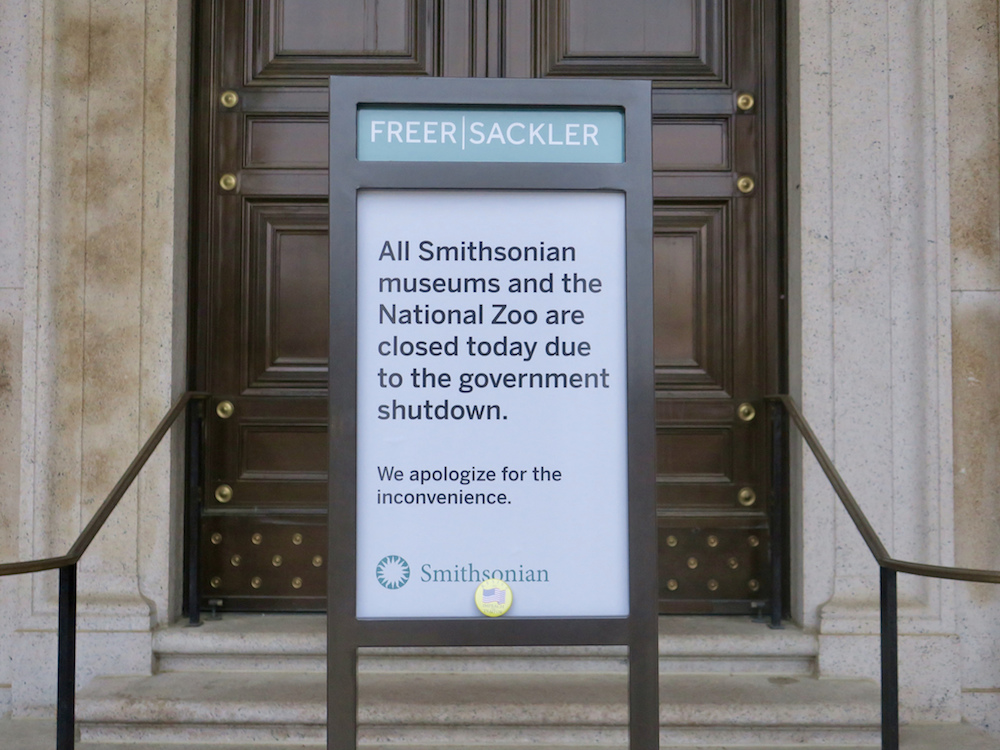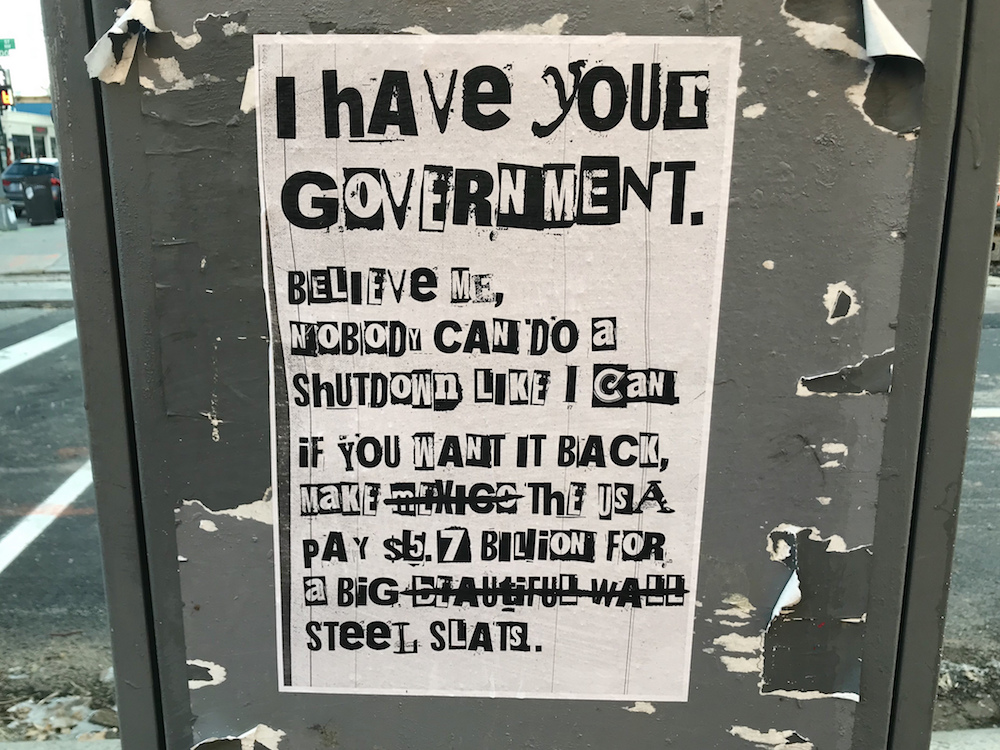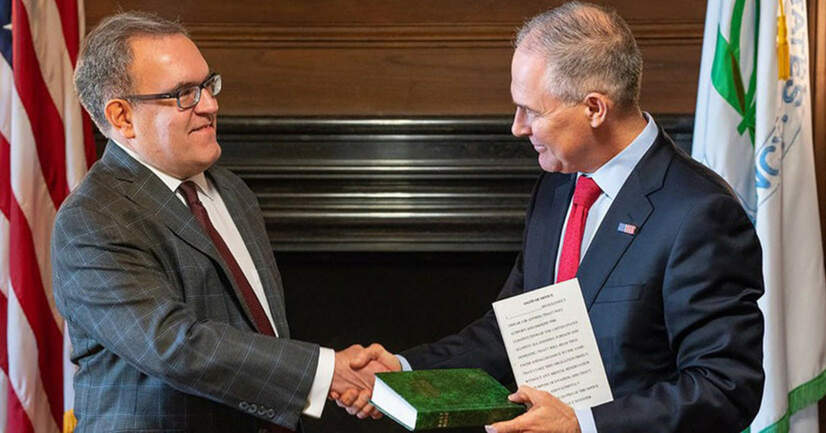Although the partial U.S. government shutdown, now marching into its fourth week, isn’t hurting the oil and gas industry, according to Mike Sommers, the head of the American Petroleum Institute (API) says he wants the shutdown to end so that the Trump administration can get back to actively helping the industry by meeting federal deadlines for rolling back environmental regulations.
Nevertheless, there are signs the Trump administration is still at work on that fossil fuel-friendly agenda in some places, such as the Arctic National Wildlife Refuge (ANWR), despite the longest government shutdown in U.S. history.
“To this point, we have not seen any major effects of the shutdown on our industry,” Sommers told reporters, as part of the API CEO‘s annual State of American Energy address on the oil and gas industry.
However, Sommers expressed concerns that a longer shutdown “… could slow efforts at the Environmental Protection Agency and Interior Department to roll back environmental regulations,” according to the Washington Examiner.
Jeffrey Holmstead, a partner at the law firm Bracewell LLP who previously served as both a coal lobbyist and EPA official for President George W. Bush, echoed Sommers’ concerns about the Trump administration’s deregulatory efforts.
“There are some people who really support the regulatory reforms and are concerned that the administration is already behind on some things,” Holmstead, who has a long history of working for the fossil fuel industry to fight environmental and climate regulations, recently told Roll Call. “There’s no doubt that keeping the government shut down for too much longer certainly puts at risk some of the things that they’re trying to do.”
Government shutdown ransom note spotted in Washington, D.C., on January 10, 2019. Credit: Joe Flood, CC BY–NC–ND 2.0
The current EPA has a March deadline for finalizing the repeal of the Obama adminstration’s signature climate change initiative, the Clean Power Plan, which Holmstead has opposed in court. Several other environmental rule rollbacks have upcoming deadlines that the oil and gas industry fears may also be in jeopardy if they aren’t pushed through in the next two years.
In other words, with a former oil lobbyist currently running the Interior Department, a former coal lobbyist at the EPA, and a climate science denier in the Oval Office, there has never been a better time to gut federal environmental protections — an opportunity the fossil fuel industry is keen to optimize.
Government Still Working for Fossil Fuel Industry During Shutdown
Speaking of the ex-coal lobbyist at the top of the EPA, Acting Administrator Andrew Wheeler‘s Senate confirmation hearing is scheduled for January 16. But Senate Democrats are questioning whether some EPA staff who are not designated to work during the shutdown may be illegally helping Wheeler prepare for his confirmation hearing.
This isn’t the only instance in which the government appears to be working on efforts that would benefit the fossil fuel industry despite the shutdown.
EPA Deputy Administrator Andrew Wheeler, who previously lobbied on behalf of the coal company Murray Energy, took over as interim EPA chief after Scott Pruitt resigned in July 2018. Credit: U.S. EPA, public domain
When Alaska’s Energy Desk emailed an employee of the Bureau of Land Management, an out-of-office reply bounced back with the message: “Due to the lapse in funding of the federal government budget, I am out of the office. I am not authorized to work during this time, but will respond to your email when I return to the office.”
And yet that same employee has been documented working to advance the environmental review process required to begin oil lease sales in the Arctic National Wildlife Refuge. As The New York Times recently reported: “Decades of protections are unwinding with extraordinary speed as Republicans move to lock in drilling opportunities [in ANWR] before the 2020 presidential election.”
And apparently not even a government shutdown is going to slow that effort.
Rep. Raúl M. Grijalva (D-AZ), the chair of the House Natural Resources committee, has raised concerns about the seemingly preferential behavior, but there is no indication that the work, which may be using a BLM Alaska funding source previously approved by Congress, will stop.
Matt Lee-Ashley, a former deputy chief of staff at the Interior Department, told Bloomberg, “The oil industry is still getting business as usual and everybody else is getting shut out, so it’s fundamentally not fair and it may be illegal too.”
.@DOIDepSec bending/breaking laws to make sure #oil industry still gets full service during #TrumpShutdown while everyone else gets the shaft:
Head of @APIenergy : “To this point, we have not seen any major effects of the shutdown on our industry.”https://t.co/55opAyYBVn
— Matt Lee-Ashley (@MLeeAshley) January 10, 2019
Closing Window of Opportunity
The oil and gas industry knows there is a limited window of opportunity while Trump and his team of former lobbyists are running the government. During his campaign, Trump promised that he would roll back regulations, and he has made good on that promise.
Examples include the regulations for reporting methane leaks in the fracking industry and moving to modern braking systems for the oil trains used to move oil produced by fracking.
While in Sommers’ annual address, he said, “The key to energy regulations is to keep them grounded in common sense and hard science,” his industry’s lobbying efforts point to the opposite. Methane releases, particularly by the fracking industry in places like the Permian Basin, are well documented (and previously underestimated) contributors to global warming, and years of research and real-world experience confirm the safety improvements delivered by installing modern braking systems on oil trains.
And yet those regulations have been repealed under Trump, at the behest of the oil and gas industry.
Pre-dating Trump, there are many examples of breakdown and failures in the regulatory system that directly benefit the oil and gas industry, such as the lack of the regulation of fracking waste, the flaring and venting of methane produced during fracking-fueld oil and gas activity, and the lack of proper oversight of gas pipelines, oil trains, and natural gas storage facilities such as Aliso Canyon — to name just a few.
If existing regulations on air and water quality were properly enforced or new science-based regulations were enacted, for example, the already money-losing fracking industry likely would be losing even more money and likely reining in its rampant production as a result.
But with the current administration’s pro-fossil fuel priorities, it’s no wonder the top oil and gas industry lobbyist is eager to get the full power of the federal government back up to speed in carrying out a vision that aligns quite well with its own.
In the Permian this morning this flare is unlit, venting #methane which is over 86 x more potent than CO2.
STOP #fracking#KeepItInTheGround pic.twitter.com/ceru5RrCjK— TXsharon (@TXsharon) January 8, 2019
Main Image: A sign posted January 2, 2019 indicating all Smithsonian museums and the National Zoo are closed during the U.S. government shutdown. Credit: Joe Flood, CC BY–NC–ND 2.0
Subscribe to our newsletter
Stay up to date with DeSmog news and alerts









